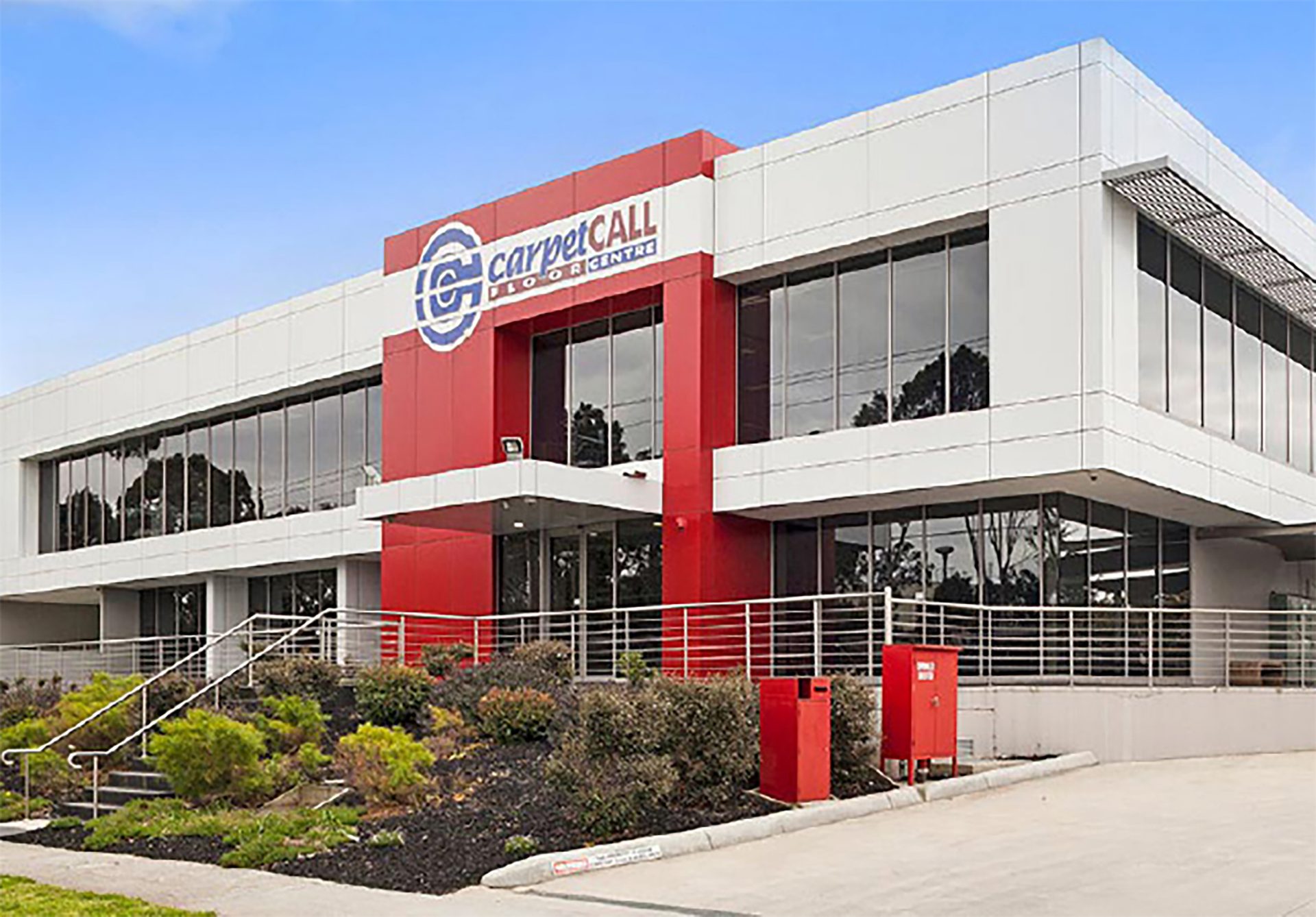Carpet Call Floor Centre in Australia Issues the Call for Flooring Installers
By: Beth Miller
// Carpet Call has warehouses/distribution centers all over Australia, ranging in size from 50,000 square feet to 90,000 square feet. Photo: Carpet Call.
When it comes to the installation crisis, we are so focused on fixing the problem within the U.S. that it is hard to imagine it happening anywhere else. But other countries are feeling the strain as well. Carpet Call Floor Centre, in Victoria, Australia, reached out to FCI to advertise for flooring installers from the U.S. The company is willing to pay to move anyone who is willing to go.
Carpet Call’s Adrian Simpson, operations manager, has 25 years’ experience in the industry. He answered our call to tell us more about the retail store’s history and how they are dealing with the installation crisis.
FCI: When did Carpet Call open its doors?
Carpet Call: Carpet Call’s humble beginnings started in 1975 with a single store in Brisbane, Australia. The owner was Jim Smith, a British immigrant. The store was so small that carpet had to be unrolled out the door onto the street to be cut for customers. Jim was a hard worker and believed his point of difference would be “Customer Service.” The store was open seven days a week. The business grew rapidly in Brisbane and later around Australia. Today, there are over 70 Carpet Call stores throughout Australia with a growing online store complementing the business.
FCI: How large is your market?
CC: We believe the floor covering industry in Australia to be over AUD$2.5 billion.
// The Carpet Call Notting Hill location was completed by FMSA Architecture and Access Constructions in 2012 and houses the headquarters and nearly 15,000 square feet of warehouse space. Photo: Access Constructions.

FCI: Which products did Carpet Call sell when it first opened and when did it begin selling the other items?
CC: Initially, the offering was just carpets and sheet vinyl. Then, in the early 1990s, Carpet Call became the first retailer in Australia to introduce floating floors to the market. Area rugs also became a valued product in our range. About 5 years ago, we entered the window furnishing market, selling and manufacturing our own roller blinds along with selling curtains and shutters. This side of the business is now growing strongly.
FCI: Does Carpet Call service both residential and commercial segments?
CC: We service both retail consumers and the residential builder’s market. Now, a household name in Australia, Carpet Call’s jingle, “The experts in the trade,” is well known.
FCI: Do you have a warehouse?
CC: We have warehouses/distribution centers all over Australia, ranging in size from 50,000 square feet to 90,000 square feet with our stock locally made along with products sourced from all over the world, including the U.S., Germany, Dubai, Malaysia and Belgium.
FCI: How many installation crews work for Carpet Call?
CC: Carpet Call employs over 400 staff and engages over 350 teams of installation contractors.
// Carpet Call breaks ground on its first location in 1975. Photo: Carpet Call

FCI: How difficult has it been to locate flooring installers?
CC: With buoyant conditions in the home renovation and residential building sectors, the demand for installers has risen and is currently outstripping the supply.
FCI: How long has Australia been struggling with the installation crisis?
CC: As Australia’s population continues to grow, the demand for skilled trades has grown with it. This sees competition from all trades to lure emerging candidates into their field. The pandemic has seen large increases in the residential building sector, causing the largest gap in installation supply ever seen.
FCI: How has the pandemic impacted the installation crisis in Australia?
CC: With Australians being unable to travel abroad for the last two years, they’ve turned to home renovation. Some states have endured lockdowns that left stores unable to open and works unable to be completed, causing a severe backlog, compounding the already stretched installation lead-times.
FCI: What are you doing to remedy the issue in your area?
CC: We constantly work with the Industry Associations, Technical and Further Education (TAFE) Schooling organizations and our network of installers to train and recruit candidates of all ages and invite them to consider a career in floor laying.
In conjunction with local advertising, we are now advertising all over the world for skilled installers who wish to seek a move to the Australian shores. We have pathways for “Permanent Residency” applicants or temporary applicants.
FCI: What is your forecast for the installation crisis in Australia? What can others do to help?

